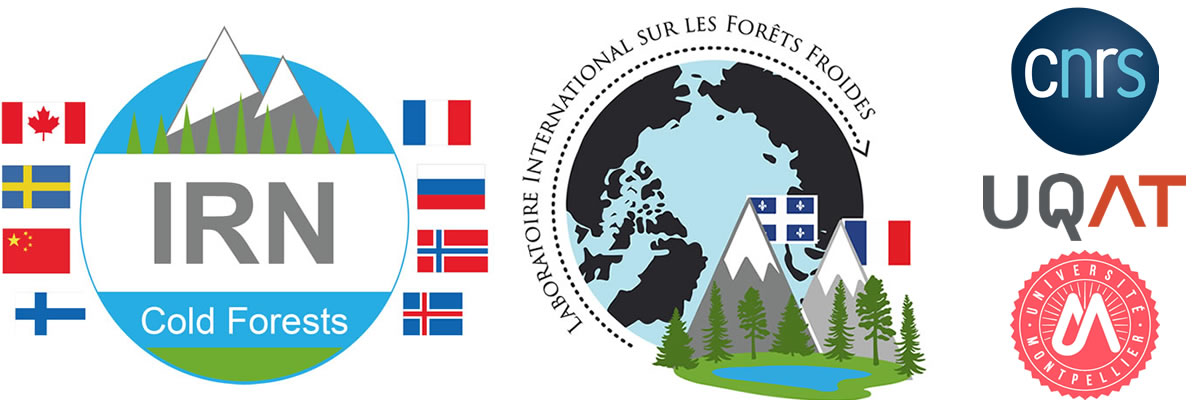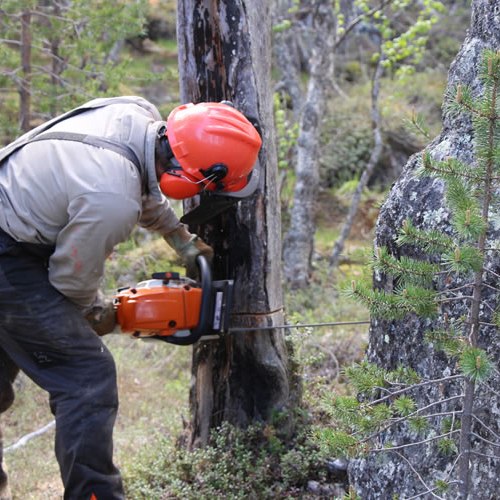Research theme on socio-environmental interactions
Theme 5.1 Cultural ecology
► Hugo Asselin (UQAT, Canada), & Didier Galop (GEODE)
► Theses involved: Julia Morarin & Clara Plancher
This research theme aims to identify, document, and explain the social, cultural, economic, political, and environmental challenges faced by indigenous communities located in cold forests, with regards to climate change and current management/use of their ancestral territories. To support Aboriginal communities facing these challenges, we propose to develop innovative approaches and to document and value traditional knowledge related to the functioning and dynamics of ecosystems.
This research theme will be conducted in close collaboration with Aboriginal communities to place into concrete perspective the repercussions that global changes can have on community habits and customs. Participatory modeling combining traditional and scientific knowledge will help to identify the most appropriate adaptation strategies. This type of interdisciplinary approach is innovative and still little used in our study areas, despite its immense potential. Since Aboriginal communities will be directly involved in this research, they will be in control of the methodology and will be able to apply the results quickly and effectively, in consultation with government agencies.
We also aim to characterize the historical footprint of societies on the functioning of ecosystems and to assess how the emergence and structuring of societies have significantly modified cold forest landscapes. Such research is based on an interdisciplinary retro-observation of socio-ecological processes that combines the multi-proxy study of paleobiological content of sedimentary archives (Themes 1 & 2) with eco-historical approaches (textual archives, ancient maps, archaeological sites, etc).
Theme 5. 2. Ecosystem management and transfer of knowledge
► Yves Bergeron (UQAT, Canada), Alexander Krysten (FRI, Russie), Sylvie Gauthier (CFS, Canada) & Pierre Grondin (MFFP, Canada)
With the IRN on Cold Forests, which focuses on long-term empirical observations, we will gain a better understanding of the key elements that limit the resilience of cold forests to climate change and changes in the frequency of induced disturbances. The countries involved in this scientific consortium have different laws and commitments, all aimed at protecting and maintaining the quality of their respective ecosystems.
The basic research conducted in this research group will contribute to the following commitments:
- the improvement of expertise and knowledge on the functioning of complex forest ecosystems subject to global changes,
- training students whose multidisciplinary expertise will be useful in the context of climate change,
- and the transfer of our knowledge to managers in government and private and industrial sectors through transfer activities, notably through chairs and research groups to which the consortium members are associated.
Forest resources of the boreal biome and mountain ecosystems are of major economic and ecological importance. The results of this research project will contribute not only to the improvement of forest management practices but also to that of carbon stocks. This information will be crucial for forest managers aiming for sustained and sustainable harvesting of forest resources, and for managers of nature reserves and protected areas. The members of this consortium have for several years maintained knowledge transfer links with government and private agencies, and with the forest industry, particularly in Canada.

